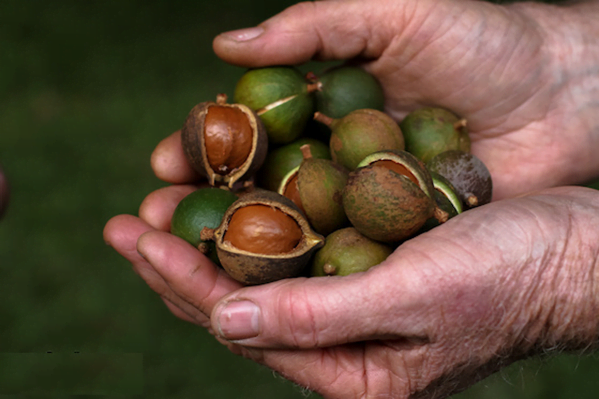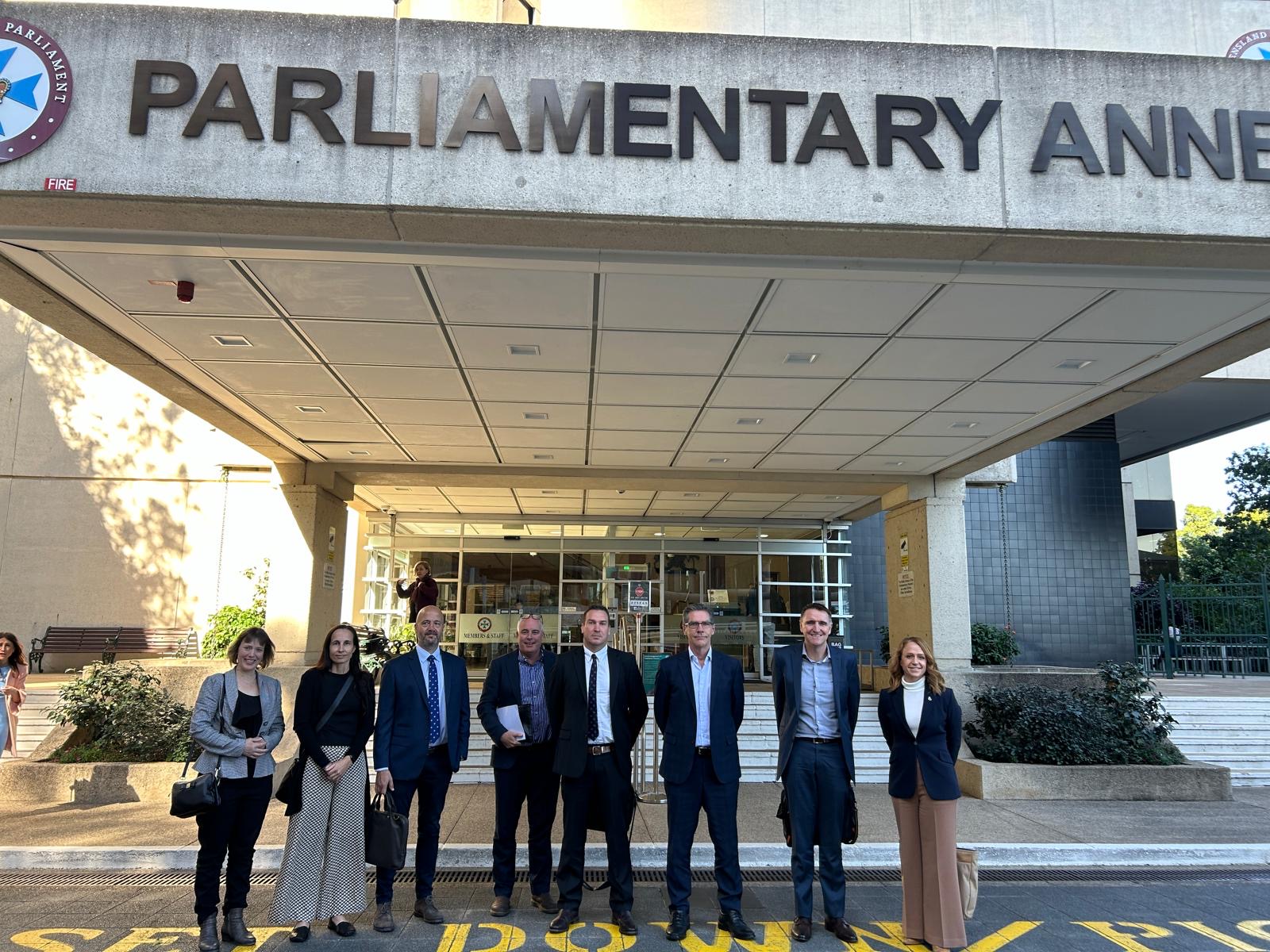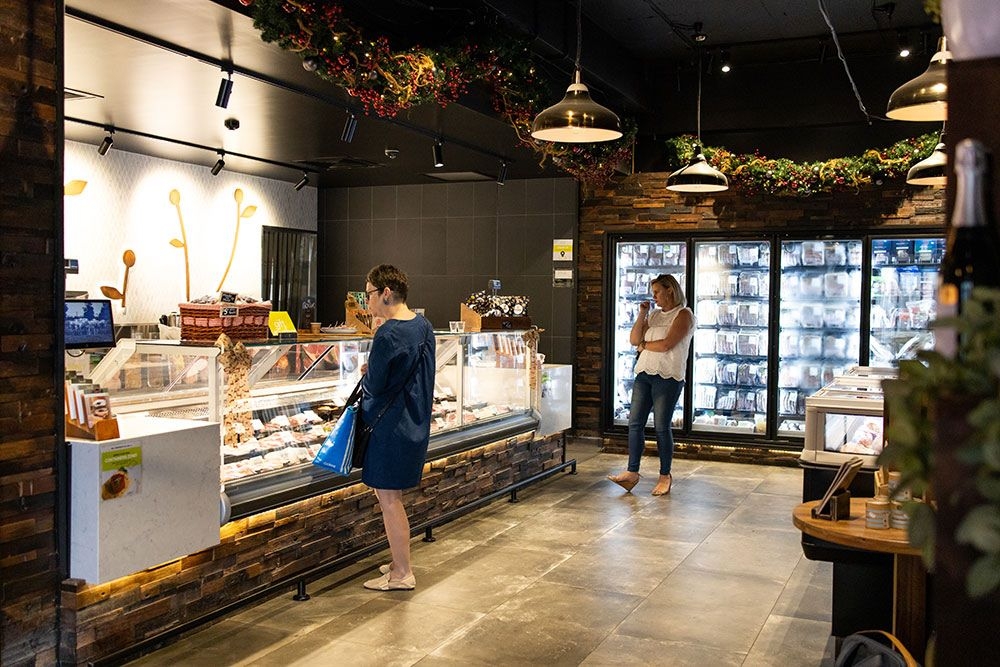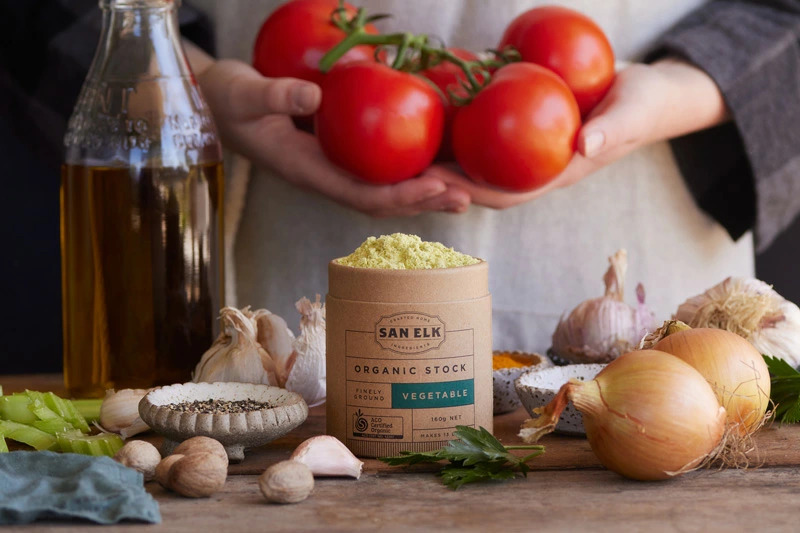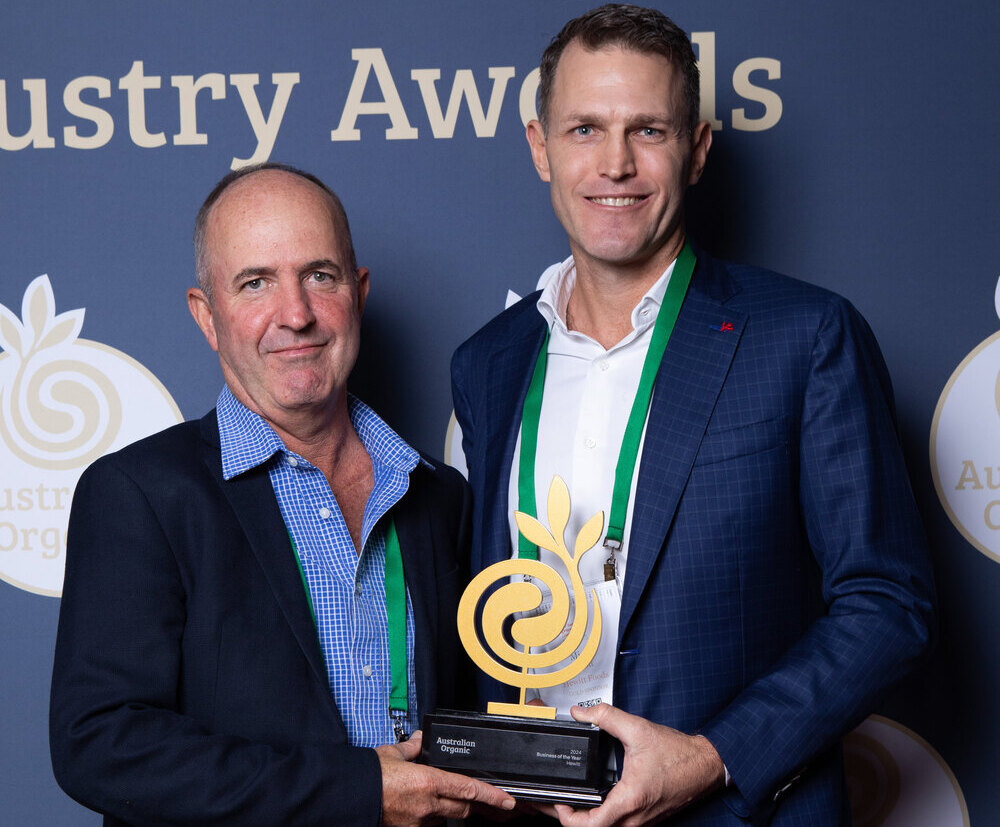Forward thinking and community involvement are often key themes of organic businesses in Australia, and AOL Member Charles Higgins is a great example of these concepts. Charles is part of an expanding local co-operative in the Nambucca Valley region on the Mid North Coast of New South Wales, where he and four other growers produce certified organic macadamias for the Australian market.
Charles has 12 hectares of macadamia trees on his property. The decision to switch to organic came at a time when world pricing for macadamias was volatile, and the local Nambucca Valley growers wanted to establish a point of difference. Not only was there a financial opportunity (due to organic price premiums and conventional fertiliser costs rising) but there was a chance to improve the health of their land in the long term. The group of five growers all became certified by 2012, establishing the first organic macadamia processing plant.
Fast forward to 2023, and there are plans for the co-operative’s output to double or treble in the years ahead, with other growers keen to get involved. Current growing locations stretch from Taree to Coffs Harbour, with the sub-tropical climate and lack of persistent pest issues making the Mid North Coast a suitable home for macadamias.
Their organic processing takes place at the Nambucca Macnuts factory, where they average 100 tonnes of macadamias per year. Charles believes there is capacity for production to expand to 250 tonnes per year with the right storage solutions. The team has even invested in a new packaging machine to support custom packaging designs for buyers.
When transitioning to organic more than 10 years ago, Charles experienced lower crop yield at first before finding an organic blood and bone combination to be the most suitable input. Kelp is also used as a natural fungicide and growth promoter with compost used in October to February during the lead up to harvesting.
The biggest challenge Charles had in transitioning to organic was the change in mindset. While non-organic agriculture is often about reacting to problems as they happen, organic is much more proactive. There’s a need to think 3 to 6 months ahead, understanding the problems that may present and having a remedy on-hand in case they do. Plants often need to be given a chance to naturally protect themselves and build resilience.
As for expanding the Nambucca Valley grower’s collective, Charles is getting plenty of enquiries from non-organic growers who are intrigued about making an organic transition. Macadamias are predominantly a domestic product, and as such are not dictated by world pricing or supermarket prices. Despite this, there is significant demand for organic macadamias in the Japanese market, which is an interesting prospect for the years ahead.
For Charles, who has been invited interstate to speak at field days, passing on his knowledge about organic macadamias is very important. “The more I share about my story, the more I get back. The sooner we can get everyone to be ahead, the faster we can travel together.”
The collective’s macadamia nuts can be found alongside other their nuts and associated products on the Nambucca Macnuts website, or else you can email nambucca@macnuts.com.au to find out more.
